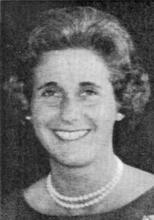Lynn Schusterman
Billionaire philanthropist Lynn Schusterman changed the landscape of the American Jewish community through her advocacy for Israel, engagement with young Jews, commitment to repairing the world, and pioneer funding of inclusion and equality. Born in Kansas City, she grew up in Oklahoma City and married Charles Schusterman in 1962. With the wealth they achieved through Samson Resources Company, one of the largest oil and gas production companies in the United States, Charles and Lynn founded the Charles and Lynn Schusterman Family Foundation in 1987. When Lynn became Chair of the Foundation in 2000, she was the first woman to lead a Jewish foundation of its size, and her bold vision extended from Tulsa, OK, across the American Jewish community, to Israel and beyond.
In 2011, billionaire philanthropist Lynn Schusterman signed The Giving Pledge, committing to donate most of her wealth in her lifetime. Underlying the pledge was “a fervent belief that the Jewish people still have much to contribute to society and a deep sense of responsibility to ensure that the opportunity to share those gifts exists in the future” (Giving Pledge, April 22, 2011). The Charles and Lynn Schusterman Family Philanthropies (CLSFP), which Lynn founded with her husband Charles in 1987 and chaired from 2000 to 2018, seeks to ignite the passion and unleash the power in young people to create positive change. With assets of more than two billion dollars, CLSFP is the largest family foundation in the United States devoted to Jewish concerns and has awarded more than one billion dollars in grants to global Jewish causes, the State of Israel, and Tulsa, Oklahoma.
Early Years
Lynn Schusterman was born on January 21, 1939, in Kansas City, Missouri, the oldest of three sisters. Her mother, Amelia Mayer, was born in Saint Joseph, Missouri, to Helen Loewen Mayer and Moses Emmanuel Mayer, who had immigrated to the United State from Germany in the 1800s. Her biological father was Wes Rothschild, whose parents, Louis Phillip Rothschild (b. 1864) and Nora Westheimer Rothschild (b. 1873) were born in Kansas and Missouri respectively. Lynn was raised by her stepfather, Harold Josey (born in Lillian, Texas), to whose example of helping others she credits her early involvement in giving back to the community. During World War II, Lynn moved with her family to New Orleans, where Josey was the Commander of the Waterfront; following the war, the family moved to Oklahoma City, where Josey started an investment company.
Schusterman’s Jewish upbringing was consistent with that of the German-Jewish community of the time. She was confirmed at Sunday school at Temple B’nai Israel in Oklahoma City, but the family also celebrated Christmas and Easter. Growing up in Oklahoma City, Schusterman was very aware of being Jewish. With only a handful of Jewish children in her class, she experienced antisemitic taunts, and many social clubs and after-school activities were closed to Jewish people.
Schusterman attended college at the University of Miami in Coral Gables, Florida. In 1961, after she returned home to Oklahoma City, she met Charles Schusterman, who was living in Tulsa. Charles came from an Orthodox Jewish family that had emigrated from Russia. The cultural divide between the German and Russian Jews was so great that when the two became engaged nine months after they met, Schusterman described her mother’s reaction as though she was marrying outside of the faith. The rabbi at the Reform Temple Lynn attended would not allow a traditional bridal canopyhuppah or the wearing of yarmulkes (skullcaps). When the couple finally married in 1962 in Lynn’s parents’ backyard, Amelia Josey mistakenly served her Term used for ritually untainted food according to the laws of Kashrut (Jewish dietary laws).kosher-keeping in-laws shrimp and lobster, believing that keeping kosher meant eating fish.
After her marriage, Schusterman moved to Tulsa, where Charles had started an oil field salvage business. She joined a close-knit Jewish community and gave birth to three children, Hal, Stacy, and Jay, while Charles built the business. In 1971, with Lynn’s encouragement, Charles created a new company called Samson Resources Company and bought several oil wells in California. His big bet proved enormously successful as oil prices soared in the 1970s; he diversified his interests with natural gas properties in the Southwest, with Samson eventually becoming one of the largest oil and gas production companies in the United States.
The Charles and Lynn Schusterman Family Foundation: 1987-2000
In 1987, Lynn and Charles created the Charles and Lynn Schusterman Family Foundation, whose mission would focus on Israel, Jewish life, and Tulsa, Oklahoma. In 1983, Charles had been diagnosed with chronic myelogenous leukemia, which at the time was incurable. Cared for by Lynn, Charles began a series of experimental treatments that ultimately prolonged his life for seventeen years. Partly in response to the diagnosis, Lynn and Charles hoped that a Foundation would ensure his legacy.
Under Charles’s leadership, the Foundation was data-driven and deliberative. Among the earliest programs in which it invested were the American Israel Education Foundation, Birthright Israel, and Hillel: The Foundation for Jewish Campus Life. Lynn’s style was more intuitive: having visited refusenik families in 1985, she wanted to invest in the Jewish community of the former Soviet Union. Working with the American Jewish Joint Distribution Committee, where she was a board member, she spearheaded efforts to bring Hillel to the former Soviet Union, engaging new generations of young people in Jewish life.
Connection to Israel
From the beginning of their marriage, both Schustermans felt connected to Israel. During Israel’s 1967 war, they borrowed five hundred dollars from the bank to purchase an Israel Bond. In 1978, Lynn visited Israel for the first time. She later shared, “Growing up, I wanted to be anything but Jewish because I was so taunted and so isolated in my Jewishness. But, from the time we hit the El Al terminal in New York City to the time we returned to Tulsa ten days later, I didn’t stop crying. I fell in love with Israel and its people” (Cardin, 40). The Foundation’s earliest grants in Israel were to the Israel Arts and Science Academy, to The Israel Museum, and to establish an educational center at Hebrew Union College, all in Jerusalem, which holds special interest for Lynn. A staunch advocate for Israel, Lynn’s priorities have included building connections between global Jewry and Israel through academia, in-person travel experiences, and exposure to Israeli culture.
The Charles and Lynn Schusterman Foundation: 2000-2018
In 2000, Lynn became Chair of the Foundation after Charles died from complications related to his leukemia. The transition to Lynn’s leadership was not smooth. As the first woman to run a major Jewish foundation, she faced skepticism. “When Charlie died,” Schusterman told a journalist, “I was already giving more than most men in the Jewish philanthropic world, but I had to bring other men with me to meetings of philanthropists if I wanted anyone to listen to me” (Prince-Gibson). But her tenure as Chair would become momentous, as her values propelled the Foundation’s work in bold new ways.
At the time of Charles’s death, the Foundation was granting approximately ten million dollars annually, an amount that grew steadily each subsequent year. Under Lynn’s leadership, the Foundation opened offices in Washington, D.C., and Israel and created multiple new global initiatives, including the Center for Leadership Initiatives, ROI Community, REALITY, and The Schusterman Fellowship. In 2011 the Foundation’s assets grew to $2.2B after Stacey Schusterman, who had assumed leadership of Samson Resources after Charles’ death, together with the Board of Directors, sold the company for $7.2B. With its new endowment, the Foundation began to award more than one hundred million dollars in grants annually.
Giving Priorities
Schusterman connects deeply with young people. She believes that providing them with compelling and relevant Jewish experiences is the strongest route to a vibrant Jewish future. The Foundation has empowered young change agents through numerous organizations it has helped to create, expand, or revitalize, such as BBYO (B’nai B’rith Youth Organization), Moishe House, Repair the World, and Hillel, and has sought to inspire a culture of Jewish service and a connection to Israel among Jewish youth.
From her days volunteering with the National Council of Jewish Women in the early 1960s, Schusterman sought ways to address child abuse and neglect, particularly in Israel and Tulsa. In Israel she helped launch the Haruv Institute as an international leader for training, research, education, and public policy in the field. With Schusterman’s support, Haruv USA opened in partnership with the University of Oklahoma at Tulsa. The Foundation has also invested in partnerships with the Parent-Child Center, Child Protection Coalition, Family and Children’s Services, and Youth Services of Tulsa, to address the cycle of child abuse in Tulsa.
Schusterman has also been an outspoken advocate for inclusion and equality, with particular focus on the LGBTQ community. She connects her support for the LGBTQ community to feeling isolated growing up Jewish in Oklahoma, recalling several classmates with whom she bonded because they, like her, felt different; only years later did she learn that they were gay. She has put issues of equality on the agenda in Tulsa, Israel, and the Jewish community through conferences, public calls for non-discrimination policies, and support for the first-ever Jewish Organization Equality Index in partnership with the Human Rights Campaign. Schusterman’s support for Jewish organizations such as Keshet, which promotes LGBTQ equality in Jewish life, came from her desire to create a culture in which “LGBT Jews are embraced as full and vital members of the Jewish family, at home, at work and in every aspect of communal life” (Schusterman, 2010).
The Foundation’s commitment to empowering youth includes significant investments in public education, first in Tulsa and subsequently on a national level. In 2009, Schusterman brought Teach for America (TFA) to Tulsa and brought TFA Fellows to Israel. More recently, the Foundation began to invest in national efforts to improve educational opportunities and outcomes for all students, especially those in low-income communities.
Animation of a speech by philanthropist Lynn Schusterman at an ROI Summit, 2017.
Schusterman was inducted into the Oklahoma Hall of Fame in 2006 and received an honorary Doctorate of Humane Letters from the Hebrew Union College-Jewish Institute of Religion in 2007. She was honored in 2008 with the Woodrow Wilson International Center for Scholars Public Service award and with the University of Texas’ highest honor, the Pro Bene Meritus award.
In 2018, Schusterman retired as Chair of the Foundation and passed the leadership to her daughter Stacy. She remains Chair Emerita of the Foundation.
Cardin, Sandy. The First Thirty Years of Making It Possible: The Story of the Charles and Lynn Schusterman Family Foundation. 30 Point Press, 2019.
Erling, John. “Lynn Schusterman: Making a difference for her community, her culture and her people” (Interview with Lynn Schusterman). Voices of Oklahoma, September 14, 2010; https://www.voicesofoklahoma.com/interview/schusterman-lynn/.
Prince-Gibson, Eetta. “Lynn Schusterman, Unintimidated Philanthropist.” eJewishphilanthropy.com, August 31, 2010; https://ejewishphilanthropy.com/lynn-schusterman-unintimidated-philanth….
Schusterman, Lynn. “Letter to Warren Buffet Committing to the Giving Pledge.” April 22, 2011; https://givingpledge.org/Pledger.aspx?id=282.
Schusterman, Lynn. “Embrace LGBT Jews as vital members of the community.” Jewish Telegraphic Agency, June 18, 2010; https://www.jta.org/2010/06/18/opinion/op-ed-embrace-lgbt-jews-as-vital….
Additional Resources:

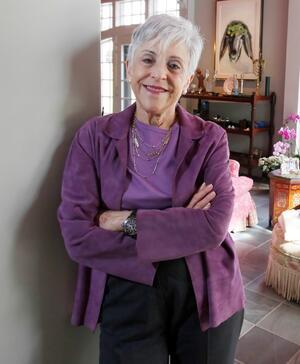
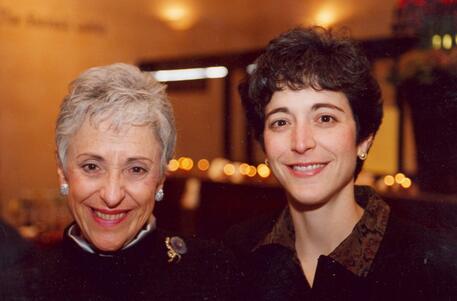
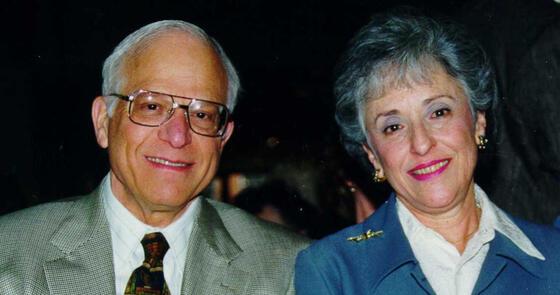
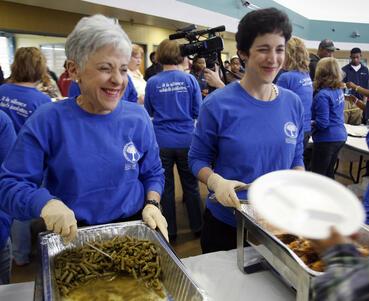
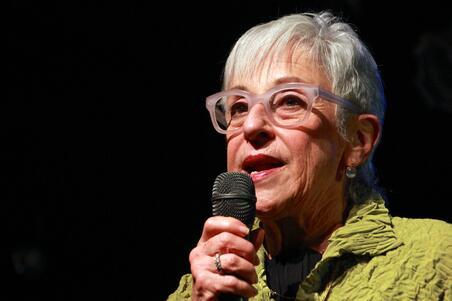

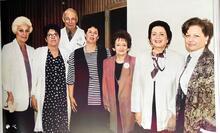
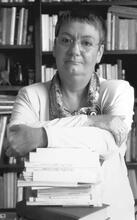


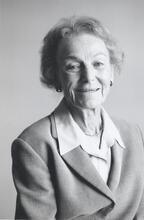
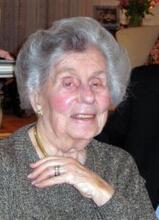
![roisman.jpg - still image [media] roisman.jpg - still image [media]](/sites/default/files/styles/medium/public/mediaobjects/roisman.jpg?itok=7iKIF0ev)
